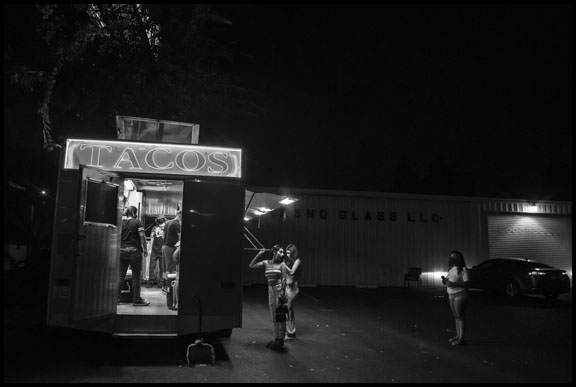| |||
| |||
[. . .]
LABOR MARCH PROTESTS THE POLICE MURDER OF GEORGE FLOYD BERKELEY, CA - 13JUNE20 - Hundreds of union members and outraged people march through the streets of Berkeley to protest the police murder of George Floyd in Minneapolis, and other African American and people of color killed by police. The march was organized by the labor councils of Alameda, San Francisco, Contra Costa and San Mateo Counties, and Service Employees International Union Local 1021. To see a full set of photos, click here: https://www.flickr.com/photos/56646659@N05/albums/72157714734338062 STUDENTS MARCH TO PROTEST THE POLICE MURDER OF GEORGE FLOYD BERKELEY, CA - 09JUNE20 - Hundreds of students, teachers and outraged people march through the streets of Berkeley to protest the police murder of George Floyd in Minneapolis, and other African Americian and other people of color killed by police. To see a full set of photos, click here: https://www.flickr.com/photos/56646659@N05/albums/72157714656895057 HUGE CAR CARAVAN PROTESTS THE POLICE MURDER OF GEORGE FLOYD OAKLAND, CA - 31MAY20 - Thousands of people participate in a caravan of over 2000 cars from the Port of Oakland, to protest the police murder of George Floyd in Minneapolis, and African American and people of color killed by police. To see a full set of photos, click here: https://www.flickr.com/photos/56646659@N05/albums/72157714533842187 IN THE FIELDS OF THE NORTH Online Exhibit, May 29 to August 2, 2020 Los Altos History Museum https://www.losaltoshistory.org/exhibits/in-the-fields-of-the-north/ TAKE A VIRTUAL TOUR OF THE EXHIBITION - IN THE FIELDS OF THE NORTH at the History Museum of Tijuana HAGA UN RECORRIDO VIRTUAL DE LA EXPOSICIÓN - EN LOS CAMPOS DEL NORTE en el Museo de Historia de Tijuana https://www.facebook.com/watch/?v=659536991515786 TARTINE HARDSHIP FUND Newly organized Tartine Bakery workers in the Bay Area need your help and assistance! This fund, supported by the International Longhsore and Warehouse Union, will help hose workers unable to collect unemployment insurance. The exhibitions in the following list were scheduled before the current COVID-19 crisis. Public gatherings are not now taking place and these exhibitions have now been postponed or rescheduled. Stay healthy! IN THE FIELDS OF THE NORTH / EN LOS CAMPOS DEL NORTE March 21, 2021 - May 23, 2021 Carnegie Arts Center, Turlock MORE THAN A WALL - THE SOCIAL MOVEMENTS OF THE BORDER Spring, 2021 San Francisco Public Library DEPORTATIONS Rescheduled for December Uri-Eichen Gallery, Chicago In the Fields of the North / En los Campos del Norte Photographs and text by David Bacon University of California Press / Colegio de la Frontera Norte 302 photographs, 450pp, 9”x9” paperback, $34.95 (in the U.S.) order the book on the UC Press website: ucpress.edu/9780520296077 use source code 16M4197 at checkout, receive a 30% discount En Mexico se puede pedir el libro en el sitio de COLEF: https://www.colef.mx Los Angeles Times reviews In the Fields of the North / En los Campos del Norte - click here "The Criminalization of Migration: A Socialist Perspective" with David Bacon and Rafael Pizarro. http://ouleft.org/wp-content/uploads/David-Bacon-The-Criminalization-of-migration.mp4 A video about the Social Justice Photography of David Bacon: https://drive.google.com/file/d/14TvAj5nS08ENzWhw3Oxra4LMNKJCLF4z/view En los campos del Norte documenta la vida de trabajadores agrícolas en Estados Unidos - Entrevista con el Instituto Nacional de la Antropologia y Historia http://www.inah.gob.mx/es/boletines/6863-en-los-campos-del-norte-documenta-la-vida-de-trabajadores-agricolas-en-estados-unidos Entrevista en la television de UNAM https://www.youtube.com/watch?v=xdSaBKZ_k0o David Bacon comparte su mirada del trabajo agrícola de migrantes mexicanos en el Museo Archivo de la Fotografia http://www.cultura.cdmx.gob.mx/comunicacion/nota/0038-18 Trabajo agrícola, migración y resistencia cultural: el mosaico de los “Campos del Norte” Entrevista de David Bacon por Iván Gutiérrez / A los 4 Vientos http://www.4vientos.net/2017/10/04/trabajo-agricola-migracion-y-resistencia-cultural-el-mosaico-de-los-campos-del-norte/ "Los fotógrafos tomamos partido" Entrevista por Melina Balcázar Moreno - Milenio.com Laberinto http://www.milenio.com/cultura/laberinto/david_baconm-fotografia-melina_balcazar-laberinto-milenio_0_959904035.html Die Apfel-Pflücker aus dem Yakima-Tal http://us7.campaign-archive2.com/?u=fc67a76dbb9c31aaee896aff7&id=0644c65ae5&e=dde0321ee7 Entrevista sobre la exhibicion con Alfonso Caraveo (Español) https://www.youtube.com/watch?v=lJeE1NO4c_M&feature=youtu.be THE REALITY CHECK - David Bacon blog Books by David Bacon Illegal People -- How Globalization Creates Migration and Criminalizes Immigrants (Beacon Press, 2008) | |
Copyright © 2020 David Bacon Photographs and Stories, All rights reserved. you're on this list because of your interest in david bacon's photographs and stories Our mailing address is: David Bacon Photographs and Stories address on request Oakland, Ca 94601 | |

